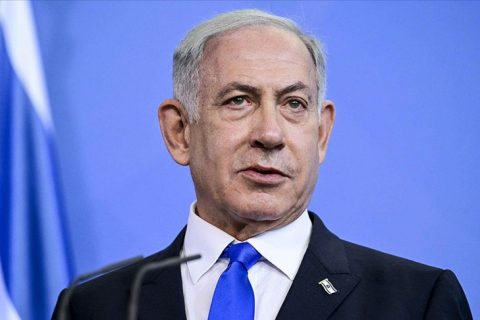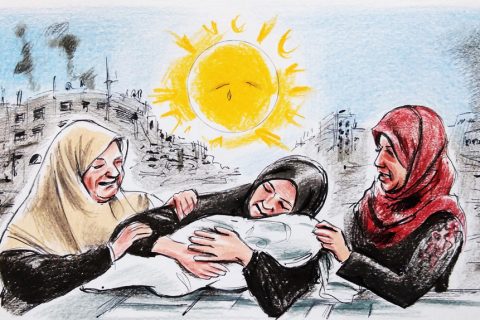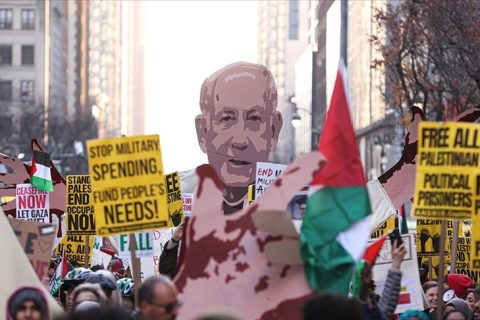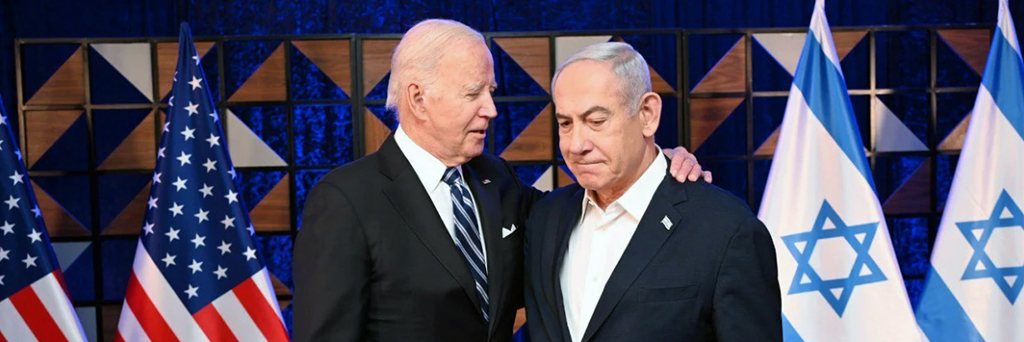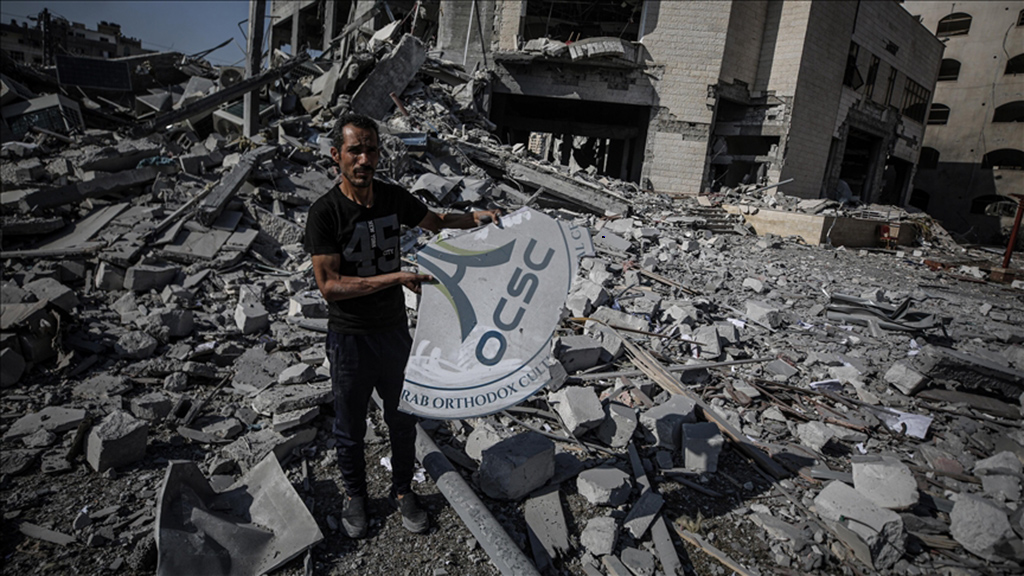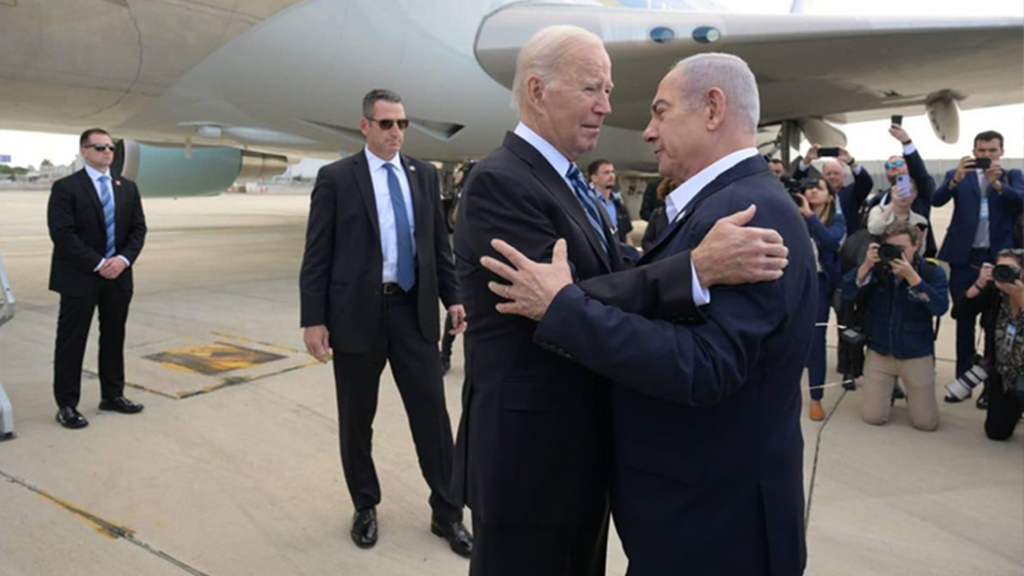US-Israel Relations
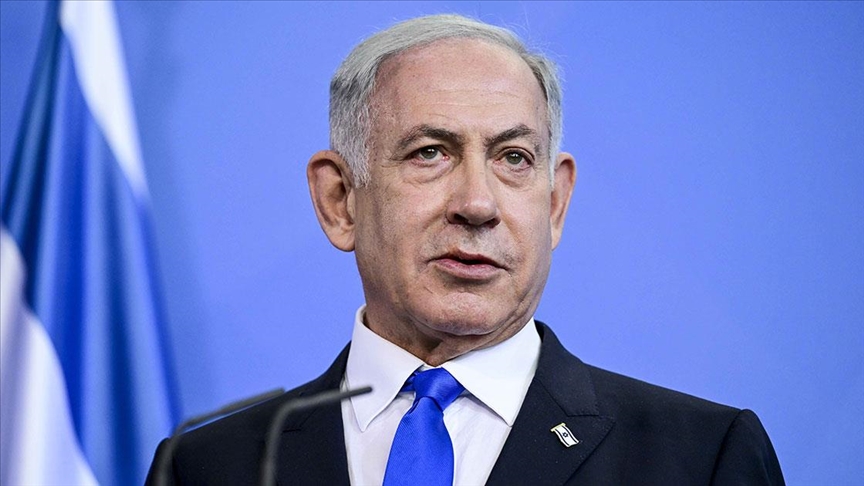
The Netanyahu predicament among Israel’s allies in Washington
| OpinionIn 2015, Netanyahu came to Washington to dynamite Obama’s deal with Iran and made a …
-
Opinion
The Netanyahu predicament among Israel’s allies in Washington
By Kadir ÜstünIn 2015, Netanyahu came to Washington to dynamite Obama's deal with Iran and made a speech in Congress. Obama was trying to delay Congress's new sanctions to make a nuclear deal with Iran. Netanyahu accepted the invitation of Republicans in the House of Representatives and did not coordinate his visit with Obama's White House. Netanyahu's speech at the session, attended by both wings of Congress, was repeatedly applauded. Netanyahu, who tried to end Obama's nuclear talks with Iran by imposing sanctions on Iran by Republicans and some Democrats in Congress, failed. Vice President Biden, who sat behind Netanyahu during his speech to Congress, seems to be facing a similar Netanyahu problem these days.
-
Opinion
Ramadan, Gaza and anti-Islam sentiment
By Burhanettin DuranFriday marked the fifth day of Ramadan. Unfortunately, there is still no cease-fire in Gaza, and Israel continues to kill Palestinians waiting for food supplies. Earlier this week, Israeli troops killed six Palestinians and injured 83 others as they waited in line to receive a bag of flour. That was not the first time, and it won’t be the last.
-
Opinion
What does the Biden-Netanyahu spat signify?
By Burhanettin DuranU.S. President Joe Biden recently said that they are working on a six-week emergency cease-fire, describing Rafah as a red line. Yet Israeli Prime Minister Benjamin Netanyahu reiterated his commitment to conduct military operations in that area. The Israeli army perpetrating atrocities in Rafah, where 1.4 million Palestinians have been starving during Ramadan, would be a new source of shame for the world and the Muslim community. Since the U.S. exerts greater influence over Israel than any other nation, one cannot help but keep an eye on the Biden administration's (in)action.
Bu Konuda Daha Fazla
-
Will there be cease-fire in Gaza during Ramadan?
By Muhittin AtamanFor the past five months, Israel has been targeting the innocent people of Gaza, with the United States and most Western governments continuing to mobilize their resources to support Israel’s brutal attacks against Gaza. By now, the attacks have become Israel’s longest intensive military operation against the Palestinians. On the one hand, while the Palestinian people are at their most vulnerable position and facing genocide, hundreds of millions of people around the world are chanting their just cause. On the other hand, as Israel continues its longest and most brutal attacks against the Palestinians, it has lost legitimacy not only in the eyes of the international community but also in the eyes of most of its supporters. It seems that this is the main paradox of post-Oct. 7.
-
New escalation in regional conflict
By Kadir ÜstünThe killing of three American soldiers in Jordan by pro-Iran militias via UAV strikes initiated a new escalation in the escalating regional conflict. Since October 7th, concerns about regional warfare seemed obsolete. We previously noted Israeli Prime Minister Netanyahu's attempt to expand the Gaza conflict regionally and entangle the US in conflict with Iran. The Jordan attack partially succeeded in these efforts. Over the past week, the US conducted military operations in the region, signaling a response.
-
Is it possible for Biden to please Netanyahu?
By Kadir ÜstünThe Biden administration has been under pressure, as reported in the media for some time, to bring an end to military operations, facilitate humanitarian aid, and address the post-war governance of Gaza, especially considering the lack of positive response from the Netanyahu government. Reports suggested that Netanyahu's government did not respond positively to these requests, and there were indications that Washington's patience was wearing thin. The latest news, where Biden reportedly told Netanyahu that the ultimate solution is a two-state resolution, was quickly countered by Netanyahu stating that this possibility is not on the table, creating a significant setback for Washington. With these statements, Netanyahu not only declared the obvious but also made it clear that under his leadership, there would be no genuine peace process, embarrassing the American President, his biggest supporter, in the eyes of the public.
-
Washington’s Gaza deadlock
By Kadir ÜstünThe Biden administration hasn't fundamentally altered its unwavering support for Israel since the beginning of the crisis. However, in the face of heavy criticism from the international community, regional countries, and even its own party and American public, especially in the past two weeks, it has started emphasizing the humanitarian crisis more. As Washington increasingly finds itself isolated on the international stage, it has begun to add qualifiers, such as the need to protect civilians and ensure humanitarian aid access, while reiterating its full support for Israel. Reports have also suggested that Israel is preparing for a large-scale invasion of Gaza, but Washington is recommending a narrower operation that takes into account the safety of hostages and civilians. The change in rhetoric seems to reflect the administration's growing awareness of the need to alleviate public pressure.
-
The US and Israel on Gaza: Biden and Netanyahu...
By Rod SuchIn the wake of the October 7 Hamas attack on Israel and the ongoing Israeli retaliation, is there anything different in the U.S. government’s response this time around?
